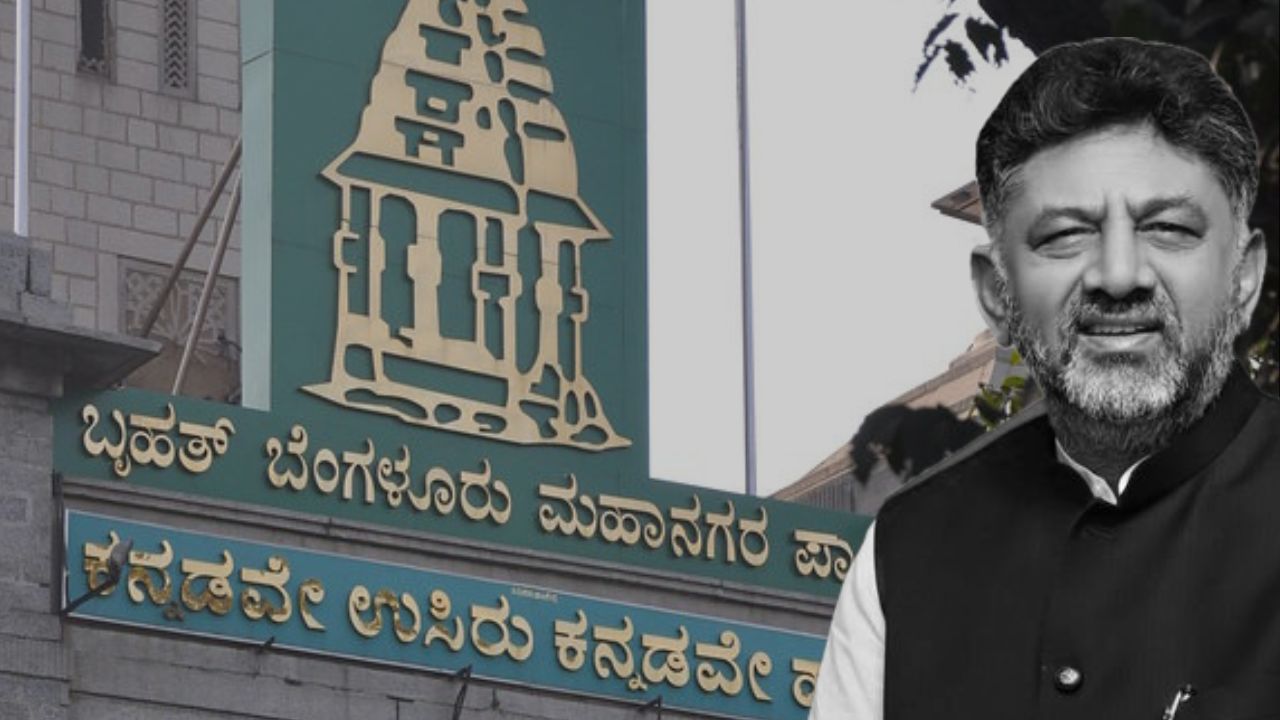Published Mar 10, 2025 | 10:09 PM ⚊ Updated Mar 10, 2025 | 10:09 PM

Synopsis: The Karnataka Legislative Assembly passed the Greater Bengaluru Governance Bill 2024 on 10 March, introducing sweeping administrative reforms aimed at decentralising the city’s governance. The bill proposes dividing the Bruhat Bengaluru Mahanagara Palike into multiple municipal corporations under the oversight of a Greater Bengaluru Authority, ensuring better waste management, water supply, and traffic regulation.
The Karnataka Legislative Assembly on Monday, 10 March, passed the Greater Bengaluru Governance Bill 2024, introducing sweeping administrative reforms aimed at decentralising the rapidly growing city’s governance.
The bill proposes dividing the Bruhat Bengaluru Mahanagara Palike (BBMP) into multiple municipal corporations, each with its own administration.
Originally introduced in July 2024, the bill was sent for review to a joint legislature committee following widespread opposition. The committee submitted it’s report on 5 March, paving for the bill’s tabling.
With the bill passed in the Assembly, it will now be tabled in the Legislative Council and, if approved, sent for the governor’s assent.
ವಿಧಾನಸಭೆಯಲ್ಲಿ
ಕೆಪಿಸಿಸಿ ಅಧ್ಯಕ್ಷರು ಹಾಗೂ ಡಿಸಿಎಂ @DKShivakumar
ಅವರಿಂದ ‘ಗ್ರೇಟರ್ ಬೆಂಗಳೂರು ಆಡಳಿತ ವಿಧೇಯಕ – 2024’ ಮಂಡನೆಯ
ಪ್ರಸ್ತಾವನೆ. pic.twitter.com/QH8beilxuw—
Karnataka Congress (@INCKarnataka) March
10, 2025
Deputy Chief Minister DK Shivakumar, who also holds the Bengaluru Urban Development portfolio and spearheaded the bill, termed it as a necessary step to strengthen city governance.
Speaking on the assembly floor, he said:
“I congratulate all the legislators who participated in the debate. The leaders of the opposition parties have shared their views, and I do not oppose their opinions. Some of them have political aspirations, which is understandable. They have acknowledged through their own conscience that it is impossible to govern Bengaluru under the existing system.”
He continued:
“They are aware that waste management and drinking water supply pose major challenges for the administration. The city of Bengaluru has expanded beyond the vision of its founder, Kempegowda. It cannot be stopped now, nor in the future. Yelahanka and Kengeri suburbs are now part of the municipal jurisdiction. Given Bengaluru’s expansion, we are taking steps to decentralize its administration.”
However, leaders from the Bharatiya Janata Party (BJP) and Janata Dal (Secular) [JD(S)] strongly opposed the bill during a heated debate in the assembly before staging a walkout ahead of the final vote.
They accused the government of pushing the bill through without adequate consultation. BJP Member of Legislative Assembly (MLA) R Ashoka warned that the restructuring could create financial disparities among the new municipal corporations, potentially leading to uneven development.
According to the DK Shivakumar, the restructuring aims to create a more responsive, efficient, and financially sustainable governance model, ensuring better service delivery in key areas such as waste management, water supply, and traffic regulation.
He highlighted three major problem areas the restructuring seeks to address:
“The city has grown beyond what its founder, Kempegowda, envisioned. We cannot halt its expansion, nor can we continue governing it under an outdated structure. Decentralisation is essential for efficient administration, accountability, and faster service delivery,” Shivakumar said.
Congress MLA from the Shivaji Nagar Constituency, and Chairman of the joint legislature committee that reviewed the bill, Rizwan Arshad described it as a landmark reform.
“The #GreaterBengaluruGovernanceBill 2024 has been passed in the Legislative Assembly. Deputy Chief Minister Shri D.K. Shivakumar introduced the bill, and it was approved by other members. This is a historic bill that will bring good governance to Bengaluru. We have decentralised power and increased transparency. A sustainable and prosperous Bengaluru is our collective responsibility,” he wrote in a post on X.
But BJP Member of Parliament (MP) from Bangalore Central, PC Mohan was less enthused about the bill. In a post on X, he wrote:
“The Greater Bengaluru Authority aims to expand the city from 708 sq km to 1,400 sq km, split it into seven corporations, impose nine new taxes, hike real estate prices, and consolidate power. It’s less about governance, more about money-making.”
The bill proposes the establishment of the Greater Bengaluru Authority (GBA) as the central coordinating body to prevent administrative fragmentation while ensuring effective governance across the new municipal corporations.
The Chief Minister will serve as the chairperson, with district in-charge ministers as vice-chairpersons.
Membership will include elected representatives from the Lok Sabha, Rajya Sabha, Legislative Assembly, and Legislative Council, alongside bureaucrats from key civic agencies, including police, water supply, Bengaluru Metropolitan Transport Corporation (BMTC), Bengaluru Metro Rail Corporation Limited (BMRCL), disaster management, fire services, and traffic management.
The GBA aims to streamline decision-making, enhance inter-departmental coordination, and ensure timely execution of development projects by consolidating multiple administrative bodies.
The GBA will oversee major infrastructure projects such as the Peripheral Ring Road, tunnel roads, and metro expansion, ensuring efficient and cost-effective completion.
The bill proposes dividing Bengaluru into up to seven municipal corporations based on population density, revenue potential, and administrative feasibility. Each must meet three key criteria:
A minimum population of 10 lakh, ensuring a substantial urban base. A minimum revenue of ₹300 crore, ensuring financial viability. More than 50 percent of employment in non-agricultural sectors, maintaining its urban character.
Meanwhile, to ensure continuity in leadership, the bill propose extension of tenures of the Mayor and Deputy Mayor from the current one year to 2.5 years.
A no-confidence motion against a Mayor can now only be introduced after six months in office, balancing stability with democratic oversight while preventing politically motivated removals.
The bill also introduces legislative constituency-level committees, headed by respective MLAs, with Members of Legislative Council (MLCs), corporators, and local officials as members.
These committees will provide direct oversight of civic affairs, ensuring better coordination between municipal corporations and state-level representatives.
At the ward level, ward committees will have a 20-month tenure, led by elected corporators. These committees will play a crucial role in hyperlocal governance, handling issues such as road maintenance, garbage collection, and water supply.
(Edited by Dese Gowda with inputs from Nolan Patrick Pinto)

